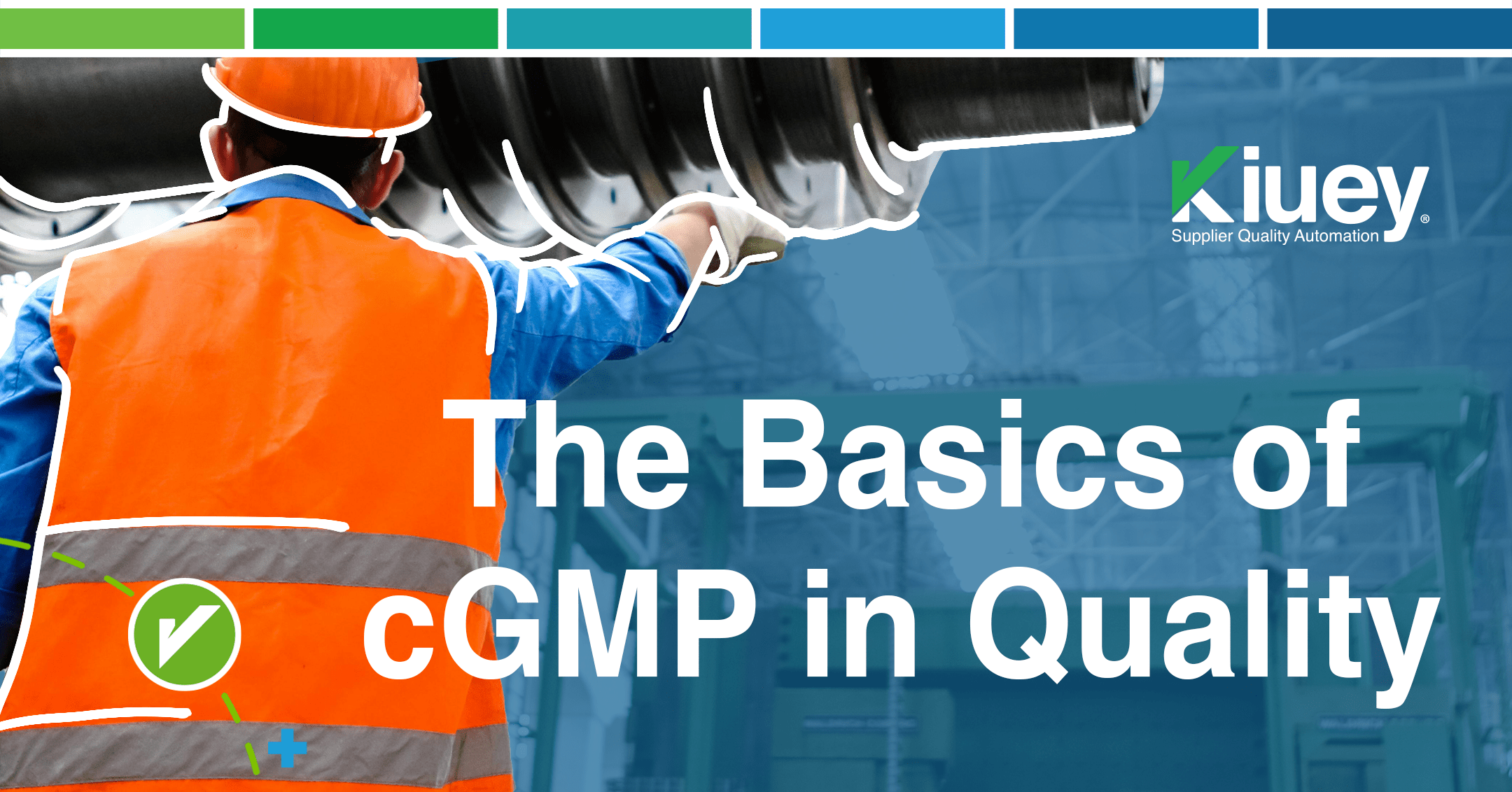
January 13, 2025
Quality is paramount in manufacturing. It directly impacts customer satisfaction, brand reputation, and overall business success. Current Good Manufacturing Practices (cGMP) provide a robust framework for achieving and maintaining high product quality throughout the entire manufacturing process.
What are “cGMP”?
cGMPs are a set of guidelines and regulations designed to minimize risks that cannot be eliminated through final product testing. They encompass all aspects of production, including:
- Raw materials: Sourcing, handling, and storage
- Equipment: Calibration, maintenance, and cleaning
- Facilities: Design, layout, and environmental controls
- Personnel: Training, hygiene, and responsibilities
- Processes: Manufacturing, packaging, and labeling
- Finished products: Testing, release, and distribution
Key Principles of cGMP:
- Prevention over detection: cGMP emphasizes proactive measures to prevent quality issues rather than solely relying on post-production inspections.
- Documented procedures: All manufacturing steps must be clearly documented, including standard operating procedures (SOPs), work instructions, and change controls.
- Continuous improvement: cGMP encourages a culture of continuous improvement, with regular reviews and audits to identify areas for enhancement.
- Traceability: A robust system for tracking products and materials throughout the manufacturing process is essential for identifying and addressing potential issues.
The Importance of cGMP Compliance:
- Enhanced product quality: Consistent adherence to cGMPs leads to higher product quality, reduced defects, and improved customer satisfaction.
- Reduced risk of recalls: By proactively addressing potential issues, cGMPs minimize the risk of costly product recalls, which can severely damage a company’s reputation.
- Improved regulatory compliance: Compliance with cGMPs ensures adherence to relevant industry regulations and minimizes the risk of fines or legal action.
Increased efficiency: Well-defined and documented procedures streamline manufacturing processes, improving efficiency and productivity. - Enhanced customer trust: Demonstrating a commitment to quality through cGMP compliance builds trust with customers and strengthens brand loyalty.
Implementing cGMPs in Your Manufacturing Process:
- Conduct a thorough risk assessment: Identify potential hazards and their associated risks throughout the manufacturing process.
- Develop and implement robust SOPs: Clearly define all manufacturing steps, including responsibilities, procedures, and acceptance criteria.
- Train all personnel: Ensure that all employees involved in the manufacturing process are adequately trained on cGMP principles and their specific roles and responsibilities.
- Maintain a clean and controlled environment: Ensure proper hygiene and environmental controls to prevent contamination and maintain product integrity.
- Implement a robust quality control system: Conduct regular inspections, tests, and audits to monitor product quality and identify any deviations from specifications.
- Maintain accurate and complete records: Document all manufacturing activities, including production records, test results, and any deviations from procedures.
- Conduct regular internal audits: Perform internal audits to assess compliance with cGMPs and identify areas for improvement.
Leveraging Technology to Support cGMP Compliance:
- Quality Management Systems (QMS) software: Utilize QMS software to manage documents, track deviations, schedule audits, and analyze quality data.
- Data analytics: Leverage data analytics to identify trends, predict potential issues, and continuously improve manufacturing processes.
- Automation: Automate repetitive tasks, such as data entry and report generation, to improve efficiency and reduce the risk of human error.
Conclusion:
cGMPs are not just a set of regulations; they are a fundamental framework for building a strong quality culture within any manufacturing organization. By embracing cGMP principles and continuously striving for improvement, manufacturers can enhance product quality, reduce risks, and gain a competitive advantage in the marketplace.
Subscribe to our newsletter.
Your go-to destination for insights, best practices, and innovative solutions in supplier quality assurance.
Let's talk to see how PPAP Manager can help your company to save time and money.


